Recovery Rebate Credit: What you need to know before filing your 2020 income tax returns
Recovery Rebate Credit: What you need to know before filing your 2020 income tax returns
The Recovery Rebate Credit is authorized by the Coronavirus Aid, Relief, and Economic Security (CARES) Act and the COVID-related Tax Relief Act. It is a tax credit against your 2020 income tax. Generally, this credit will increase the amount of your tax refund or decrease the amount of the tax you owe.
The Recovery Rebate Credit was eligible to be paid in two rounds of advance payments during 2020 and early 2021. These advanced payments of the Recovery Rebate Credit are referred to as the first and second Economic Impact Payments.
Individuals who received the full amounts of both Economic Impact Payments do not need to complete any information about the Recovery Rebate Credit on their 2020 tax returns. They already received the full amount of the Recovery Rebate Credit as Economic Impact Payments. You received the full amounts of both Economic Impact Payments if:
- Your first Economic Impact Payment was $1,200 ($2,400 if married filing jointly for 2020) plus $500 for each qualifying child you had in 2020; and.
- Your second Economic Impact Payment was $600 ($1,200 if married filing jointly for 2020) plus $600 for each qualifying child you had in 2020.
Who can claim the Recovery Rebate Credit?
Eligible individuals who did not receive the full amounts of both Economic Impact Payments may claim the Recovery Rebate Credit on their 2020 Form 1040 or 1040-SR. To determine whether you are an eligible individual or the amount of your Recovery Rebate Credit, complete the Recovery Rebate Credit Worksheet in the Instructions for Form 1040 and Form 1040-SR.
Generally, you are eligible to claim the Recovery Rebate Credit if you were a U.S. citizen or U.S. resident alien in 2020, cannot be claimed as a dependent of another taxpayer for tax year 2020, and have a Social Security number valid for employment that is issued before the due date of your 2020 tax return (including extensions).
You must file Form 1040 or Form 1040-SR to claim the Recovery Rebate Credit even if you are normally not required to file a tax return.
Form 1040 and 1040-SR Instructions – Recovery Rebate Credit Worksheet
If eligible, you can claim the Recovery Rebate Credit when you file your 2020 tax return (Form 1040 or Form 1040-SR) electronically using tax software or on paper. The 2020 tax return instructions include a recovery rebate credit worksheet you can use to figure the amount of any Recovery Rebate Credit for which you are eligible. The recovery rebate credit worksheet requires you to know the amounts of your Economic Impact Payments.
Your Recovery Rebate Credit amount will be phased out if your adjusted gross income for 2020 exceeds:
$150,000 if you are married filing a joint return or filing as a qualifying widow or widower,
$112,500 if you are using the head of household filing status, or
$75,000 if you are using any other filing status.
How do I find the amounts of my Economic Impact Payments?
You should have received IRS Notice 1444 for the first Economic Impact Payment, and you should receive Notice 1444-B for the second Economic Impact Payment. Refer to them when completing your 2020 tax return. If eligible for the Recovery Rebate Credit, you will use the information from these letters to determine the amounts to include on the recovery rebate credit worksheet or in your tax preparation software to help you calculate your credit amount.
What If I Received More Than What I Was Entitled To?
If you received more than you were entitled to, the IRS does not require you to pay the money back nor is any such ineligible amount added on to your 2020 taxes. Taxpayers whose incomes increased in 2019 or 2020 compared with their earlier tax returns which the IRS relied on to determine whether they qualified for the payments, may be in this situation.
Will I owe taxes on the stimulus checks?
No, because the stimulus checks are not considered income by the IRS but instead are prepaid tax credits for your 2020 tax return, authorized by the (CARES) Act and the COVID-related Tax Relief Act.
My income changed since I last filed my taxes. What should I do?
Taxpayers who might not have qualified for the full stimulus checks if their earnings were above the income cutoff based on their 2018 or 2019 tax returns, should complete the recovery rebate credit worksheet to calculate how much they are owed and claim that amount on Line 30 on their 2020 tax return. They will receive the stimulus payments in their refund check.
How will the stimulus checks impact my tax refund – and when will I get it?
If you are owed more money from the two rounds of stimulus payments, the IRS will provide the additional payments with your refund check. Because the stimulus payments aren’t considered income by the IRS, it will not impact your refund by increasing your adjusted gross income or putting you in a higher tax bracket.
Beware Of New IRS Scam!
You get a call from someone claiming to be working for the IRS claiming:
“We need your personal information in order for you to claim the coronavirus stimulus money.”
This appears to be an identity theft scheme to obtain recipients’ personal and financial information so the scammers can provide the IRS with their banking information to get your economic impact payment deposited into their account. In reality, the IRS WILL NOT CALL YOU! Federal aid will either be deposited via account information the IRS already has from your tax filings or they will send you a check.
Where can I get more information?
The IRS has established a special section focused on steps to help taxpayers, businesses and others affected by the coronavirus and as information becomes available, the IRS will be updating this special page on its website. You can also check out the KahnTaxLaw Coronavirus Resource Center.
An Opportunity For Taxpayers Who Owe The IRS
Do not think that if you owe the IRS your tax problem will disappear because of the measures being considered by the government. Instead you should be utilizing this valuable time to get yourself prepared so that when activity in this nation regains momentum, you are ready to make the best offer or proposal to take control of your outstanding tax debts.
As a prerequisite to any proposal to the IRS, you must be in current compliance. That means if you have any outstanding income tax returns, they must be completed and submitted to IRS.
Also, if you are required to make estimated tax payments, you must be current in making those payments. Fortunately, as we are now at the end of 2020, taxpayers who expect to owe for 2020 should have their 2020 income tax returns done as early as possible in 2021 so that the 2020 liability can be rolled over into any proposal and the requirement to make estimated tax payments will start for 2021.
Remember that COVID-19 does not alter the tax laws, so all taxpayers should continue to meet their tax obligations as normal. Individuals and businesses should keep filing their tax returns and making payments and deposits with the IRS, as they are required to do.
Also, the IRS will continue to take steps where necessary to protect all applicable statutes of limitations. In instances where statute expirations might be jeopardized during this period and a taxpayer is not agreeing to extend such, the IRS will issue Notices of Deficiency and pursue other similar actions to protect the interests of the government in preserving such statute.
What Should You Do?
You know that at the Law Offices Of Jeffrey B. Kahn, P.C. we are always thinking of ways that our clients can save on taxes. If you are selected for an audit, stand up to the IRS by getting representation. Tax problems are usually a serious matter and must be handled appropriately so it’s important to that you’ve hired the best lawyer for your particular situation. The tax attorneys at the Law Offices Of Jeffrey B. Kahn, P.C. located in Orange County (Irvine), Los Angeles (including Long Beach and Ontario) and elsewhere in California are highly skilled in handling tax matters and can effectively represent at all levels with the IRS and State Tax Agencies including criminal tax investigations and attempted prosecutions, undisclosed foreign bank accounts and other foreign assets, and unreported foreign income. Also if you are involved in cannabis, check out what a cannabis tax attorney can do for you. And if you are involved in crypto currency, check out what a bitcoin tax attorney can do for you.

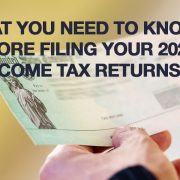



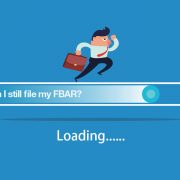


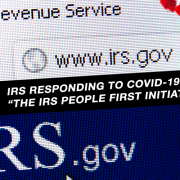
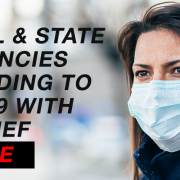
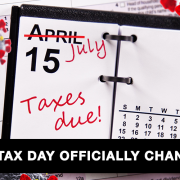
 Follow
Follow Follow
Follow